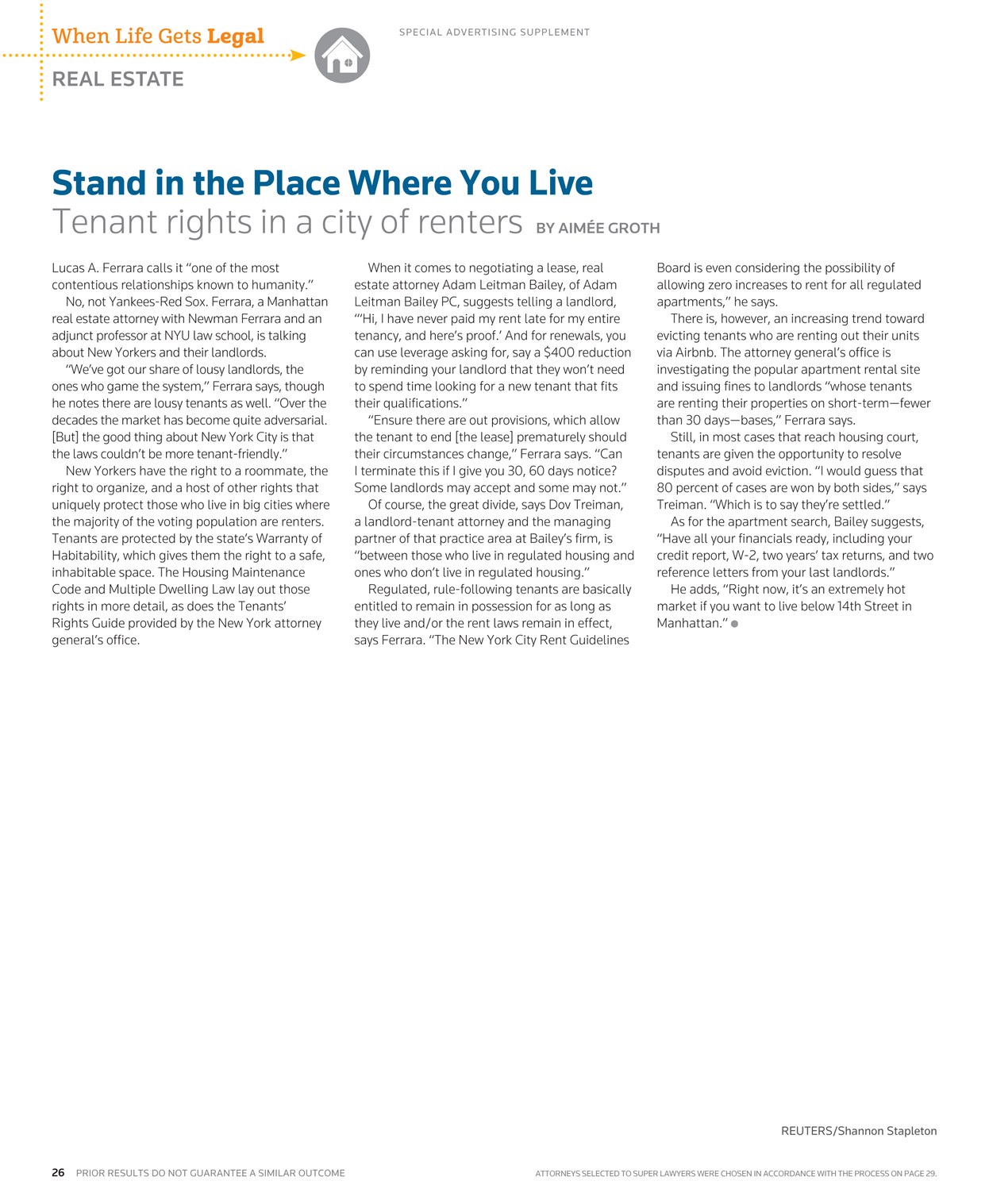
Was honored to have been quoted in this issue of Super Lawyers Magazine:
Stand in the Place Where you Live

Lucas A. Ferrara calls it “one of the most contentious relationships known to humanity.”
No, not Yankees-Red Sox. Ferrara, a Manhattan real estate attorney with Newman Ferrara and an adjunct professor at NYU law school, is talking about New Yorkers and their landlords.
“We’ve got our share of lousy landlords, the ones who game the system,” Ferrara says, though he notes there are lousy tenants as well. “Over the decades the market has become quite adversarial. [But] the good thing about New York City is that the laws couldn’t be more tenant-friendly.”
New Yorkers have the right to a roommate, the right to organize, and a host of other rights that uniquely protect those who live in big cities where the majority of the voting population are renters. Tenants are protected by the state’s Warranty of Habitability, which gives them the right to a safe, inhabitable space. The Housing Maintenance Code and Multiple Dwelling Law lay out those rights in more detail, as does the Tenants’ Rights Guide provided by the New York attorney general’s office.
When it comes to negotiating a lease, real estate attorney Adam Leitman Bailey, of Adam Leitman Bailey PC, suggests telling a landlord, “‘Hi, I have never paid my rent late for my entire tenancy, and here’s proof.’ And for renewals, you can use leverage asking for, say a $400 reduction by reminding your landlord that they won’t need to spend time looking for a new tenant that fits their qualifications.”
“Ensure there are out provisions, which allow the tenant to end [the lease] prematurely should their circumstances change,” Ferrara says. “Can I terminate this if I give you 30, 60 days notice? Some landlords may accept and some may not.”
Of course, the great divide, says Dov Treiman, a landlord-tenant attorney and the managing partner of that practice area at Bailey’s firm, is “between those who live in regulated housing and ones who don’t live in regulated housing.”
Regulated, rule-following tenants are basically entitled to remain in possession for as long as they live and/or the rent laws remain in effect, says Ferrara. “The New York City Rent Guidelines Board is even considering the possibility of allowing zero increases to rent for all regulated apartments,” he says.
There is, however, an increasing trend toward evicting tenants who are renting out their units via Airbnb. The attorney general’s office is investigating the popular apartment rental site and issuing fines to landlords “whose tenants are renting their properties on short-term—fewer than 30 days—bases,” Ferrara says.
Still, in most cases that reach housing court, tenants are given the opportunity to resolve disputes and avoid eviction. “I would guess that 80 percent of cases are won by both sides,” says Treiman. “Which is to say they’re settled.”
As for the apartment search, Bailey suggests, “Have all your financials ready, including your credit report, W-2, two years’ tax returns, and two reference letters from your last landlords.”
He adds, “Right now, it’s an extremely hot market if you want to live below 14th Street in Manhattan.”

